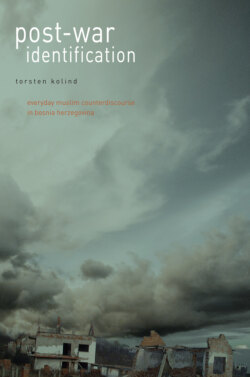Читать книгу Post-War Identification - Torsten Kolind - Страница 19
На сайте Литреса книга снята с продажи.
Experience/narrative
ОглавлениеThe third and most recent perspective in contemporary anthropology of war and war-related violence is mainly an ethnographic one. The centre of interest is not on macro-actors’ strategic use of violence, the built-in potential of violence to produce identities, or the communicative aspect of violence. The focus is on actual victims’ subjective experiences of war, violence and torture, and on the narratives people construct in their attempts to (re)create meaning, identities and social relations in a shattered world.4 Concurrently with such analyses, the very possibility of the academic representation of such fundamental and groundbreaking experiences has been discussed. Analyses of actors’ experiences of violence can, it is argued, be seen as a contradiction in terms, since the “experience of war implies a loss of the conceptual and epistemological framework that previously provided means to interpret the events of life and death of others” (Löfving and Maček 2000: 5, see also van de Port 1998: 27-8). At the same time, though, anthropologists have also insisted on the academic responsibility to ‘write against terror’, and speak out against injustice (Scheper-Huges 1992; Taussig 1987).
